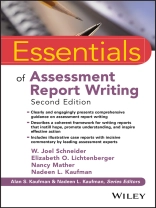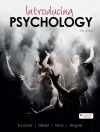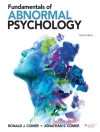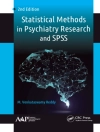The bestselling guide to reporting writing, updated and reworked for today’s practice
Essentials of Assessment Report Writing offers effective solutions to the creation of reader-friendly, yet targeted, psychological, and educational assessment reports. Parents, clinicians, clients, and other readers need more than test-by-test descriptions–they need an accessible analysis of the entire situation to determine their next steps. This book provides clear guidance for busy practitioners seeking ways to improve their report writing skills. With a focus on current practice, this new second edition covers DSM-5 updates and the latest assessment instruments including the WJ IV, WISC-V, WAIS-IV, KTEA-3, and the CAS2. New discussion includes advice on tailoring the report to the audience, and annotated case reports provide illustrative models of effective report styles, interpretation, and analysis. Key concepts are highlighted for quick reference throughout, and end-of-chapter questions help reinforce understanding.
Reporting styles vary widely within the field, in both content and style; there is no definitive ‘standard, ‘ but many reports fail to reflect best practices and therefore prove less than useful to the reader. This book provides expert guidance throughout the reporting process to help practitioners provide high-quality, accessible reports.
* Integrate assessment results to provide a person-centered report
* Identify and navigate critical decision points in the interpretive process
* Write efficiently yet effectively while enhancing the reader’s experience
* Provide an accurate, informative, and readable assessment report
* Incorporate practical recommendations to address the referral concerns
Expertly-conducted assessments should culminate with a carefully constructed analysis that provides direction via clear communication. Because this report will be used to inform treatment, intervention, and ultimately, the client’s quality of life–it is critical that it provides clear, informative guidance in a way that readers can understand. Essentials of Assessment Report Writing provides comprehensive guidelines for navigating through the report writing process.
Table des matières
Series Preface ix
Preface to the Second Edition xi
Acknowledgements xiii
One Introduction and Overview 1
Two Make Your Reports Classy and Gorgeous 11
Three Writing with Clarity, Style, and Purpose 30
Four Introductory Sections of the Report 73
Five Behavioral Observations 97
Six Communicating Test Results 128
Seven Diagnostic Impressions and Summary 157
Eight Personality Assessment (by Rita W. Mc Cleary) 166
Nine Recommendations 197
Ten Special Issues in Report Writing 230
Eleven Tips for Writing Evaluation Reports (by John O. Willis) 249
Twelve Annotated Case Reports 260
References 445
Index 452
A propos de l’auteur
W. JOEL SCHNEIDER, PHD, is an Associate Professor in the Department of Psychological Studies in Education at Temple University, Philadelphia.
ELIZABETH O. LICHTENBERGER, PHD, is a licensed clinical psychologist in Carlsbad, California.
NANCY MATHER, PHD, is a Professor at the University of Arizona, in the Department of Disability and Psychoeducational Studies.
NADEEN L. KAUFMAN, Ed D, is co-Series Editor with Alan S. Kaufman of the Essentials of Psychological Assessment series and is a Lecturer at the Child Study Center, Yale University School of Medicine.












